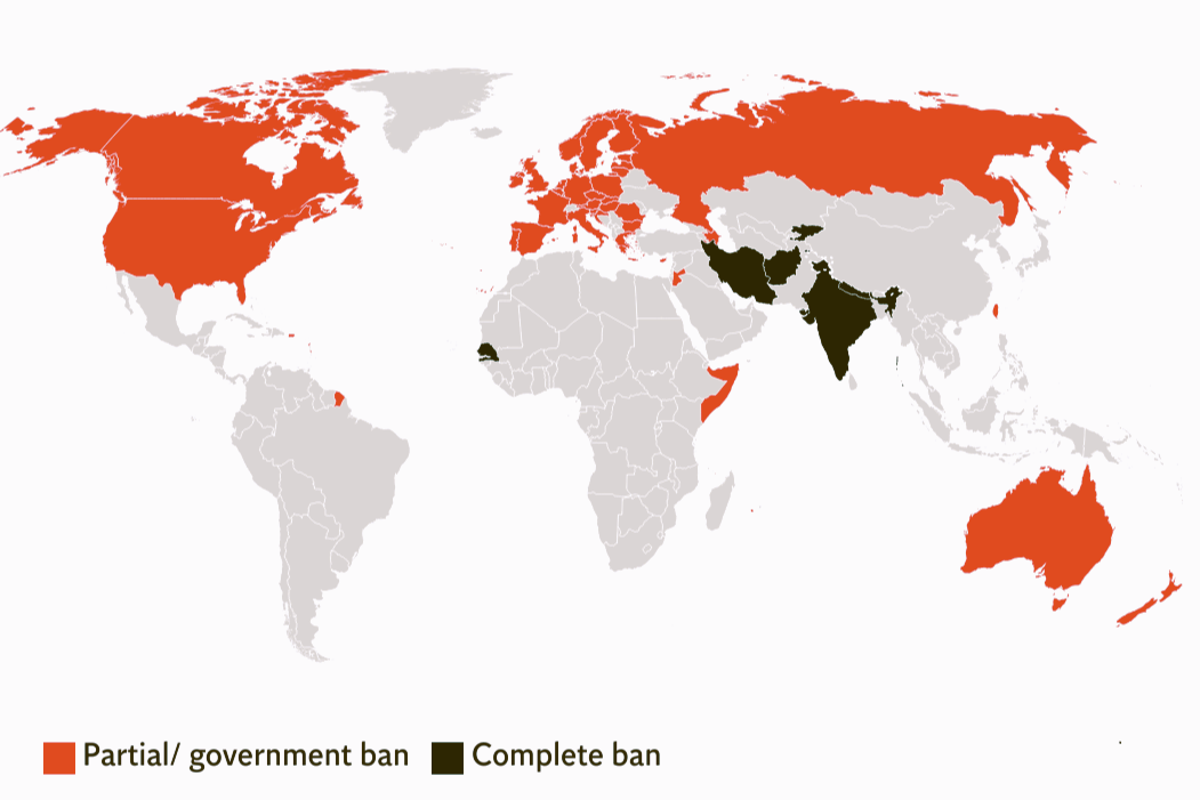TikTok ban: Why a total block in the US could be so devastating

Less than six years after launching in the US, TikTok is now facing a reckoning. After amassing more than 170 million users in the country, lawmakers are now making moves to roll out a complete ban of the controversial app.
The biggest ever Chinese tech success in the US is accused of mishandling user data and holding too much influence over Americans, with lawmakers fast-tracking a vote on whether to force parent company ByteDance to either sell the app or cease operations.
Fears around national security have been countered with questions about censorship, with the Electronic Frontier Foundation describing the prospect of a ban as a “seed of genuine security concern wrapped in a thick layer of censorship”.
The US digital liberties group has called on people to “resist a governmental power to ban a popular means of communication and expression”, while the FBI claims Chinese state ties to parent company ByteDance could allow the app to “manipulate content” in order to spread harmful propaganda.
The US is not the first major market to consider a total ban of the social media platform, with India issuing a complete TikTok ban in 2020. Other countries and areas, including the EU, have put partial bans in place.
Various federal and state TikTok bans are already in place in the US, banning government workers and military personnel from using the app on official devices.
An attempt by Montana to ban TikTok, which was set to go into effect at the start of 2024, was blocked by federal judges.
The controversy has done little to stem its growth in the US, with TikTok proving to be the most popular social media app in America in 2023, and the second most popular overall behind e-commerce giant Temu.
This has helped bring the total number of TikTok users around the world to above 1.5 billion, with only India’s ban nearly three years ago slightly slowing its growth – but not by much.
Despite the warnings surrounding TikTok, the app is viewed positively by the majority of young users, which may cause the Biden administration to hesitate on ordering an outright ban given younger demographics typically skew towards voting Democrat.
Biden’s reelection campaign has even set up an account on TikTok in an attempt to reach a younger audience. The first video, posted during the NFL Superbowl last month, showed the 81-year-old US President answering quickfire questions. It received more than 10 million views. The account has since posted more than 60 videos.
TikTok CEO Shou Zi Chew defended the app and its intentions when he appeared before Congress last year.
The former Facebook intern downplayed ties to the Chinese government while trying to convince members of Congress that the app is safe for US users and poses no threat to national security.
In response to the latest attempt to ban it, TikTok sent a pop-up message to all US users urging them to contact their representatives.
“This will damage millions of businesses, destroy the livelihoods of countless creators across the country, and deny artists an audience,” the message stated.
“Let Congress know what TikTok means to you and tell them to vote NO.”
The US House of Representatives will vote on the matter this week.


